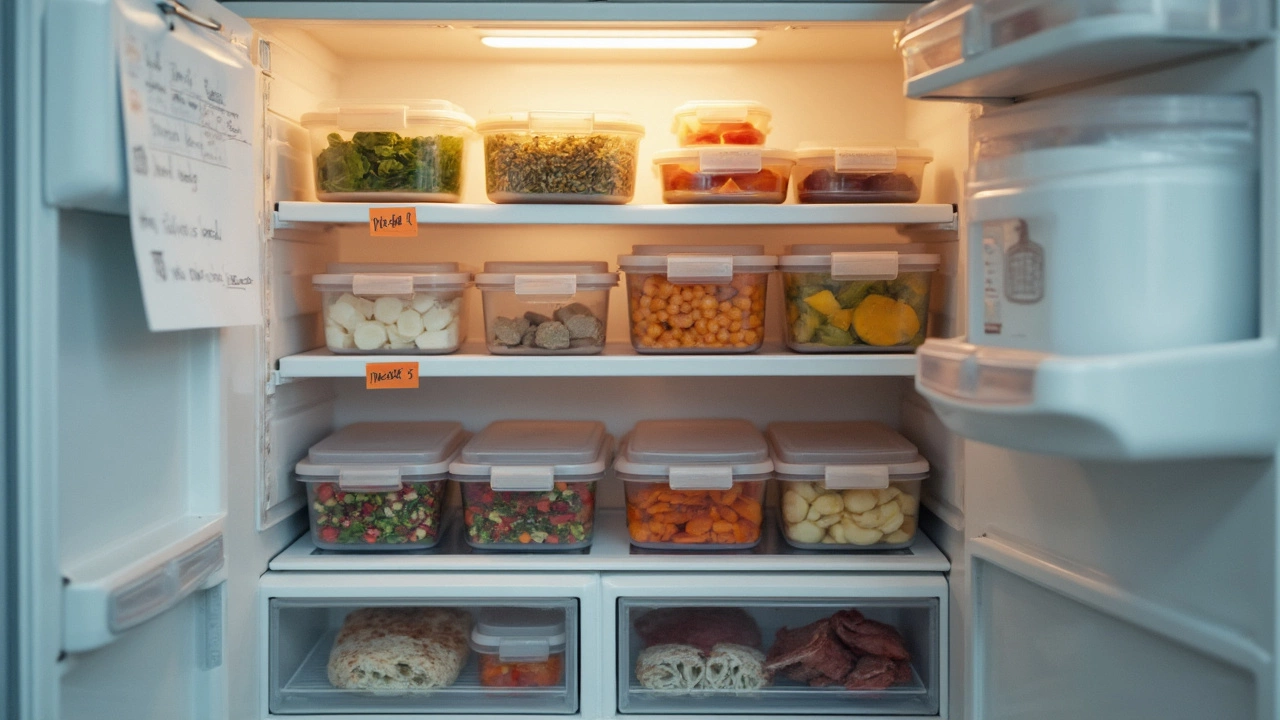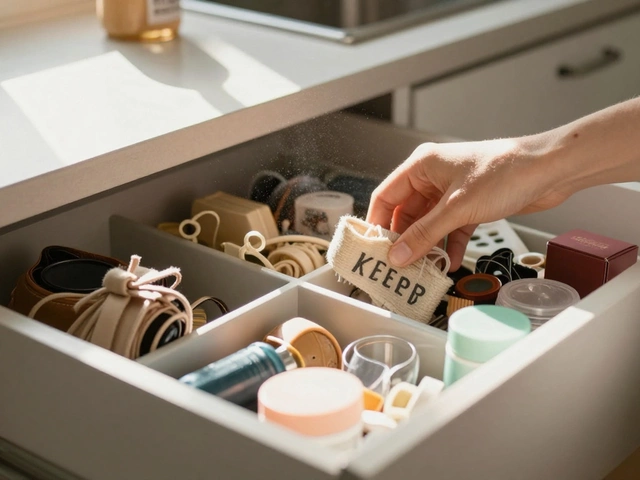Meal prepping for five days is a big yes for time-saving, but is it safe? Let's get into the nuts and bolts of keeping your meals fresh and safe. First off, food safety is key. The last thing you want is to eat something sketchy by Wednesday.
Food safety starts with choosing the right ingredients. Always go for fresh produce and quality meats. Basic stuff, but it counts. Also, don’t forget to check expiry dates when you're shopping.
Once you've got your ingredients sorted, it's all about storing them properly. Use airtight containers and make your fridge your best friend. Organize your meals by the order you'll eat them, placing the ones for later in the week at the back.
- Understanding Food Safety
- Choosing the Right Ingredients
- Storing Meals Properly
- Benefits of Meal Prepping
Understanding Food Safety
When it comes to meal prep, understanding basic food safety is a must. The number one concern is preventing foodborne illnesses, which nobody wants to deal with midweek. Let's break down the essentials.
Temperature Matters
Bacteria can grow in food that's kept at temperatures between 40°F and 140°F, often called the 'danger zone.' Always keep hot foods hot and cold foods cold. Your fridge should be set below 40°F and your freezer at 0°F or lower.
Proper Cooking and Cooling
Cook meats to the right internal temperature. Use a food thermometer to make sure poultry hits 165°F, ground meats 160°F, and steaks or roasts 145°F. Once cooked, food should be cooled quickly. Get it into the refrigerator within two hours of cooking.
Storing and Reheating Meals
Store your meals in airtight containers to maintain freshness. When it's time to eat, reheat leftovers to at least 165°F. If you're using a microwave, let the food sit for a couple of minutes after heating, so the heat spreads evenly.
Proper Hygiene
Always wash your hands and surfaces before and after handling food. Don't forget to clean fruits and veggies too. Cross-contamination is a real issue, so keep raw meats away from other foods.
Smart Meal Planning
If planning meals for five days feels like a stretch, consider doing two rounds of meal prepping, with the second batch midweek to keep things fresh and safe. If you've prepped too much and can't eat it in time, freezing meals is an option.
Choosing the Right Ingredients
Picking the right ingredients is the backbone of successful meal prep. It's something you've got to nail down if you want those meals to last the week safely. Besides, who doesn't want meals that are tasty and safe?
Start with the produce aisle. Always aim for fresh fruits and veggies. They're not only crucial for keeping your meals healthy but also ensure that you're not dealing with anything spoiled halfway through the week. Make sure to check for any signs of spoilage, like spots, wrinkles, or any funky odors.
Moving on to proteins, stick with top-quality meats. Look for clean cuts of chicken, beef, or fish. If you're going for plant-based options, beans and legumes should be dry and free of moisture.
Focus on Quality Brands
When it comes to pantry items, loyalty to quality brands pays off. Opt for brands known for good quality grains, pasta, and sauces. This isn't about being fancy but about ensuring that everything in your meal prep sustains its integrity throughout the week.
- Check expiration dates – Always a must when you're meal prepping for multiple days.
- Buy in bulk – Only buy in bulk if you know you'll use it. Otherwise, it's a one-way ticket to unnecessary waste.
By choosing the right ingredients, you set a strong foundation for your meal prep, ensuring each dish is nutritious, fresh, and safe to eat—so important for maintaining healthy eating habits.

Storing Meals Properly
Let’s dive into storing meals properly because nobody wants funky-smelling food on their hands. Fridge organization is key. Make sure the temperature is at or below 40°F (4°C) to halt bacteria growth. A handy tip is to keep a fridge thermometer inside just to be sure.
Your choice of containers matters big time! Airtight containers will become your best buddies. They not only keep your meals fresh but also prevent spills and stop your food from picking up those weird fridge odors.
Labeling is Your Friend
Ever forgotten when you made something? That's where labeling comes in. Jot the date on each container. That way, you'll know when it's time to eat or toss.
Freezing is an Option
If you're worried about freshness, consider freezing some meals. Most meals can hang out in the freezer for up to three months. Just make sure you’re using freezer-safe containers or bags to avoid freezer burn, which we all know isn't tasty.
Easy Access in the Fridge
Arrange your meals in order of when you plan to eat them. Place Monday's meal in the front and Friday's in the back. This minimizes the time your fridge door stays open as you gleefully grab your next meal.
| Ingredient | Fridge Storage | Freezer Storage |
|---|---|---|
| Cooked Chicken | 3-4 days | 2-6 months |
| Cooked Rice | 1 week | 6 months |
| Steamed Vegetables | 3-4 days | 10-12 months |
Remember, meal planning isn’t just about cooking in bulk; it's about ensuring each bite is as safe as it is delicious. Follow these steps for a hassle-free meal prep week!
Benefits of Meal Prepping
Alright, let's talk about why meal prepping is more than just a trendy buzzword. For starters, it saves a chunk of your time. Imagine bypassing the daily dilemma of deciding what's for dinner. Prepping ahead means you're set for the week, leaving you more time to kick back or tackle other tasks.
Meal planning is a top-notch way to stay on track with healthy eating habits. When you've got meals ready to go, you're less likely to reach for cookies or chips. It's a win for your waistline and your wallet since you're avoiding those last-minute takeout orders.
Stress Less, Save More
Finances got you stressed? Meal prepping can cut down your grocery bills. Buying ingredients in bulk typically costs less. Plus, with your meals mapped out, there's less waste. You're using what you buy, and that's always a smart move.
Consistency and Portion Control
Consistency is another biggie. Having prepped meals helps you hit your dietary goals. If you're counting calories or working on your macros, having meals portioned out and at the ready keeps everything consistent.
- No more guessing portion sizes.
- No more surprise extra calories.
- Just balance and control, all week long.
Remember, food safety is crucial when it comes to extended meal prep. Make sure to store food properly to keep everything fresh and healthy. Proper planning and organization are simple but impactful steps towards feeling great and fueling right.










